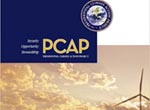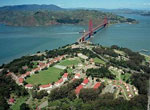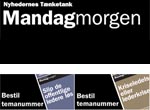|
|
||
Contents |
||

Natural Capitalism Offers Economic TurnaroundNew Additions to the TeamTransforming Industry in AsiaPresidio Students Win Big at Walmart ChallengePaul Sheldon Addresses Loudoun WaterGreen Jobs Training Program for InmatesUpdate on PCAPNational Teach-In UpdateNatural Capitalism Continues Work with Colorado's Governor's Energy OfficeNatural Capitalism Solutions’ Intern ProgramLife Beyond Internships: Kate Curl’s AdventuresNatural Capitalism Solutions Moving Soon!On the Road with HunterUpcoming Events |
||
Natural Capitalism Offers Economic Turnaround |
||
|
As prior issues of this E-lert have described, crony capitalism — the driver of unparalleled environmental destruction, growing disparities in wealth, and now a deepening economic collapse — has turned out to be unable to sustain even itself. In 2008, 2.6 million jobs were lost in the United States alone — 584 thousand lost in November and a similar number lost in December. In 2008, 40 percent of stock value vanished — a $9 trillion loss in the United States. Add in the $5 trillion 2008 real estate loss and over $14 trillion of the American dream was foreclosed upon. In March 2009, the Financial Times reported that loss in value of all assets worldwide exceeded $50 trillion — more than the annual U.S. GDP and equal to the total value of all real estate worldwide. Meanwhile, the aggregate value of speculative, "derivative" investments is more than 10 times that amount — over $600 trillion! In this time of economic crisis, Natural Capitalism offers a better way to do business. Efficient, effective, redesign of products, processes, and systems will bring forth truly regenerative communities, companies, and countries, based on the “integrated bottom line.” It is time to integrate the values of people and natural systems, as well as the liabilities of damaging these systems, as part of the annual balance sheet by which success is measured. In a variety of papers, presentations, and consultations, Natural Capitalism is working with governments around the world, with companies large and small, and with communities to implement an economy that can deliver genuine wealth and well-being. We invite you to join us. |
||
New Additions to the Team |
||
Welcome Paul Sheldon |
 [return
to top]
|
|
A Late Welcome to Emily Evans |
 [return
to top]
|
|
Transforming Industry in Asia |
||
|
Hunter and Emily presented the draft outline of a blueprint for transforming the industrial future of Asia. Focusing on rethinking and redoing the way that businesses manufacture and deliver goods and services, the paper will present the business case for sustainable change and the future of industry in Asia. The well-received presentation initiated a discussion about the intricacies of sustainable change among U.N. staff and government representatives. Using the feedback from the meeting, Natural Capitalism will draft a major paper for UNIDO that will set forth a roadmap to provide Asian businesses with the tools necessary to shift their operations toward more sustainable modes of production. The paper will address how resource-efficient and low-carbon manufacturing can lift people out of poverty within Asia. After the paper is presented in Manila this summer, final comments will be incorporated and the paper will be published as an official U.N. report. A final presentation will be given at UNIDO’s Annual General Assembly in Vienna, Austria in late 2009. |
||
Presidio Students Win Big at Walmart Challenge |
||
Congratulation to the Presidio School of Management team that beat out teams from Stanford University and University of California-Berkeley’s Haas School of Business to win the Western Regional competition of Wal-Mart's second annual Better Living Business Plan Challenge. The Challenge gives business students around the world the opportunity to invent sustainable products and business solutions. Sandra Kwak, Kendall Laine, and Elizabeth Stuart from Presidio will compete against seven other teams in the semi-finals in Bentonville, Arkansas, in April. Three finalist teams will present to an executive panel, including former Wal-Mart CEO Lee Scott, and executives from leading companies and non-governmental organizations. Wal-Mart will present the winning team with a $20,000 prize that can be used as seed money to fund their venture. “We are thrilled to have the opportunity to compete and incorporate everything we are learning in our Sustainable Management MBA program into our business plan,” said Stuart. “The judges were impressed with the innovative Presidio approach to making a strong business case for sustainability.” The Presidio team wrote its plan for an easy-to-use, smart-energy product called a Powerzoa, a plug that meters and controls energy use as it connects to a Web site displaying energy use information. The students business plan incorporates sustainability principles throughout, in a compelling, integrated bottom-line approach. Along with three other classmates, the students, who will complete their MBA degrees this May, developed the product idea last semester in a class on sustainable products and services. The team will develop a product prototype of Powerzoa and research product viability as they explore starting a company to develop and market the product. Hunter continues consulting with and teaching at Presidio School of Management, one of the first schools in the country offering an MBA in Sustainable Management. With an emphasis on whole systems, the school’s curriculum teaches "integrated bottom line" sustainability principles that serve as the foundation of a strategic commitment to sustainability.
|
 [return
to top]
|
|
Paul Sheldon Addresses Loudoun Water |
||
 |
||
Green Jobs Training Program for Inmates |
||
With generous support from PortionPac, Natural Capitalism Solutions is developing an innovative green jobs training program for inmates approaching release from correctional institutions. This exciting program is being developed in collaboration with Melissa Bradley-Burns of Green for All Capital Access Program and David Johnston of What's Working. We also will seek further collaboration from vendors, community colleges, workforce investment boards, and other institutions to ensure that individuals re-entering mainstream society will receive the skills they need to fill green jobs in weatherization, retrofitting, and/or solar and wind technologies, so that the green wave can enable them to re-join their families and communities in productive ways. Natural Capitalism's Christopher Juniper, Robbie Noiles, and Paul Sheldon also are exploring green jobs training programs for military personnel approaching their honorable discharge. |
 |
|
Update on PCAP |
||
|
Executive Director Bill Becker reports that PCAP recommendations already implemented by the Obama administration include:
|
||
National Teach-In Update |
||
|
The National Teach-In on Global Warming Solutions, with fiscal sponsorship from Natural Capitalism Solutions, activated over 800 campuses, congregations, civic organizations, and businesses across the country on February 4 and 5. The Teach-In focused on the action plan developed by the Presidential Climate Action Project to provide a roadmap for the first 100 days of the Obama administration. Teach-Ins featured symposia, simulation games, lectures, debates, theater performances, art shows, and technology fairs. Working with House Speaker Nancy Pelosi’s office and SightSpeed® (an Internet video chat and conferencing provider), the Teach-In offered a historic, direct video dialogue between the Capitol and campuses. Twenty-five campuses engaged their members of congress. The Chronicle of Higher Education reported: “Rep. Bob Inglis, Republican of South Carolina, used the visual medium…by bringing a prop: a decalcified egg floating in a jar of vinegar. ‘As carbon sinks into the ocean, it increases the acidity of the ocean, and that acidification causes the shells of calcium-based organisms to dissolve,’ Mr. Inglis explained to students at Wofford College, Furman University, Lander University, Clemson University, and the University of South Carolina Upstate. ‘You don’t want to open up a hole at the bottom of the food chain’.”The Teach-In’s webcast, “Solutions for the First 100 Days,” was viewed by over 4000 audiences in the first week. The webcast is still available on-line, and continues to be watched across the country. Eban Goodstein, co-director of the Teach-In, said the Teach-In network — faculty, staff, student, faith, and civic leaders across the country — will continue educating and promoting civic engagement. This fall, Goodstein, as the incoming Director of The Bard Center for Environmental Policy, will lead an ongoing educational initiative: The National Climate Dialogue. The Dialogue will feature top climate scientists, analysts, and policy-makers in a twice-monthly, national seminar series via conference call. These seminars — an intellectually exciting arena — will be open to anyone: classrooms of students, individual students, faculty or staff, and citizens. In April 2009, an Education for Leadership conference will be held at Bard. The last day of the conference will be devoted to brainstorming about these proposals and the direction for The National Climate Dialogue over the next few years. Join us there! Goodstein also plans to sponsor 250 campus-to-congress SightSpeed® video-dialogues, this time directly from the desks of the individual members of Congress. These conversations will be especially important given the climate legislation likely to be debated in Congress during the spring of 2010. A third massive Teach-In, a partnership with Earth Day Network, will be explored to provide content for an International Teach-In on Global Warming Solutions, to be held in conjunction with the 40th Earth Day celebration on 22 April 2010. |
||
Natural Capitalism Continues Work with Colorado's Governor's Energy Office |
||
|
Natural Capitalism Solutions recently assisted the state of Colorado's Governor's Energy Office (GEO) in creating a workbook for local governments across Colorado. The workbook, built upon Natural Capitalism Solutions’ previous work with the Climate Protection Manual for Cities, walks local governments through 13 key ways to implement effective sustainability initiatives and climate solutions. It highlights case studies of what other communities are doing and provides resources to help communities on their path towards sustainability. Natural Capitalism Solutions is honored to work with the governor’s office to develop this practical, easy-to-use sustainability tool, especially as Colorado Governor Bill Ritter was one of the first leaders to call for "unleashing the new energy economy," supporting business, residents, and municipalities in implementing climate protection. View the workbook here. |
||
Natural Capitalism Solutions’ Intern Program |
||
|
Natural Capitalism Solutions’ thriving intern program, facilitated by Rachel Hohensee, helps students, graduates, and individuals position themselves for a career change. Current interns, four of whom are returning from the fall semester program, include:
|
||
Life Beyond Internships: Kate Curl’s Adventures |
||
|
Kate Curl leveraged her internship at Natural Capitalism in summer 2007 to become our operations and development officer until she joined the Peace Corps. Now stationed in The Gambia, West Africa, Kate is working with a Gambian non-governmental organization (NGO) called Agency for Village Support (AVISU). She recently shared her experiences with Hunter via email: “I arrived in The Gambia in September 2007 with no idea of what the country was like and no idea of what kind of life I would be living for the next 26 months. Eighteen months later, I can say I’ve come a long way. I live in a small town called Kaur and I work with a local NGO called Agency for Village Support (AVISU). The mission of the organization is to empower poor communities, especially by reaching out to women, who are the most disenfranchised group. AVISU has three program areas: adult literacy, micro-finance, and environment, and they work with more than 30 communities. “I run the Environment and Agriculture program, and in the past year we've given support to community gardens, started five tree nurseries, held trainings, and established a beekeeping project. This year, I hope to establish a community woodlot, work on reforestation with some community forest groups and the Department of Forestry, get my local schools to establish tree nurseries, and establish live-fencing at the community gardens with which we work. But my main job at the office generally is supporting the staff and training them on things that to us in the West have become second nature: using Microsoft Word, writing reports or grant proposals, running meetings, typing on a keyboard, troubleshooting when the printer won’t work. It can be very frustrating work, and I’ve learned to have a great deal more patience. As they often say here, “Slowly, slowly you catch the monkey’s tale in the bush,” meaning with patience and persistence you can reach your goal, and “It’s not easy,” which means, well, it’s not easy. “In my spare time, I coach a girls soccer team, run a club at the middle school to teach kids about the world outside of The Gambia, chat with women at the local market, go on walks to the river with my dog, or just sit under a mango tree with friends drinking the local sweet tea, called attaya, and wait for the heat of the day to pass. “Despite the fact that I’ve gotten used to so many things here, one thing that never ceases to amaze me is the “leap-frog” technology that I see all around. For example, in The Gambia, as in all of Africa, land phone lines were never really prevalent and electricity still is found only in a few places, yet in the past few years, mobile phones have become commonplace — mobile phone technology leap-frogged the old phone-line technology. “In the same vein, my town got electricity two years ago, with the construction of a diesel-powered power plant. It’s not the most environmentally-friendly technology, but I was impressed with their pre-pay cash power system here. When you are running low on power, you go to the power station, purchase some kilowatts and add them to your power meter. You can look at your power meter at any time and see how much power you have left, and figure out how fast you use it. Also, at any local bitik (corner store), you can buy compact fluorescent light blubs right next to the regular light bulbs. They’re twice the price, but people know they last a lot longer, don’t heat up as much, and they can see on their power meters that they are using a lot less energy. People buy CFLs because it’s the economically sensible thing to do. Similarly, the power is only on 11 hours a day, scheduled for the only times you really need power: at night and for a few hours in the morning. The system works great. Refrigerators still keep things cool and you can have your lights and fan running at night. The power schedule does make it difficult to run an office on normal hours, though, so AVISU is run entirely on solar power. It never ceases to amaze me that some things that are commonplace in The Gambia are still too revolutionary to be mainstream in America, despite the fact that most people here still get around on donkey carts, use pit latrines, and cook their food over open fires. In a place without the vast infrastructure and entrenched systems of the United States, people in The Gambia are doing what makes the most economic sense. “At the same time, there are still a lot of barriers to development in The Gambia. One of the biggest is simply lack of capital. The Gambia is still one of the poorest countries in Africa and the world. The country does not produce nearly enough food to feed its own population, let alone to export. There are other serious challenges the country faces too, like over-population, deforestation/desertification, and dependence on foreign aid. “I worry what will happen to the people I live and work with in The Gambia, the people who have become my second family. Gambians are already living on the edge. At the moment, people make and grow just enough food to survive (and chronic malnutrition is still a serious problem). One bad year of drought could push many people over the edge. “I have just eight months left in my Peace Corps service, and it doesn’t feel like nearly enough time to do all the things I want to do. I often wonder if the work I’m doing matters at all in comparison to the big global issues affecting The Gambia. I know what the answer is, but I also believe that we all have to do our part. And I know that what I am getting out of my experience here is much more than I could ever hope to give back.” |
||
Natural Capitalism Solutions Moving Soon! |
||
|
After seven years of renting a wonderful space in Eldorado Springs just south of Boulder, Natural Capitalism Solutions is purchasing a home just north of Boulder. The 100-year-old historic house, zoned commercial real estate is a phenomenal opportunity for us. The move should take place around the middle of May. The house, which is about 2300 square feet and twice the size of Natural Capitalism’s current building, will give us much needed space. The house already has been evaluated by Ecofutures Building Inc. of Boulder to identify needed energy efficiency measures. We’ll let you know as soon as we’re ready to host an open house! |
 |
|
On the Road with Hunter |
||
Table of Contents
|
[return to top] |
|
At last writing, Thanksgiving, I was grateful that a blown engine on my flight from Stockholm didn’t scatter our airplane over the north Atlantic and I was home to actually spend some time in Colorado. It went to writing on our about-to-emerge, “Solutions at the Speed of Business.” This Web-based manual, which should be released within the next few weeks, is eagerly awaited by utilities, chambers of commerce, economic development agencies, and others because it will help small businesses cut their carbon emissions profitably. The manual will get a first workout as Natural Capitalism Solutions helps the city of Boulder cut its carbon emissions. The city, the first in the United States to implement a carbon tax, has been dismayed to find its carbon emissions still going up. Given that small businesses are half of the national economy, and far more than that in towns like Boulder, helping them cut their energy use and thus their carbon emissions cannot only help protect the climate, but also rescue the economy. |
||
|
Time at home lasted about a week; then it was west to keynote the Green California Schools Summit. It was cool to hear various California officials announce the state’s commitment to make schools net-zero (producing at least as much energy as they consume). Schools frequently are some of the least energy-efficient buildings. Including good green features like daylighting, which saves energy, also can dramatically increase learning, raising test scores by 20 to 26 percent. The first speech of the day done, I screamed across Los Angeles to give another at Cal State Northridge, before flying north to teach. Los Angeles has to be one of the least sustainable cities in the world, but I guess it was good to get a reminder of what those freeways are like. |
|
|
|
At Presidio, I finished up the semester teaching the class on implementation, another on the principles of sustainable management, and the class on business, government, and civil society. Interestingly, the guest speakers all were, in one way or another, working to protect the climate. They included former students who have founded EOS, a company to destroy as ozone-depleting substances. The Montreal Protocol banned the production of any more ozone-depleting substances, but forgot to include provision for destroying the ones in existence. The chlorofluorocarbons like refrigerants are vastly more damaging to the climate than carbon dioxide — and some 11,000 times worse for the climate than CO2. As stronger climate regulations loom, companies that hold these substances are highly incentivized to simply open the tubes and let ‘em go, thereby endangering the climate even worse. EOS has developed a proprietary way to destroy the chemicals, enabling their owners to be paid in carbon credits — a brilliant strategy and a way of using markets to achieve environmental protection that is not being done by regulation. In between Presidio duties, I spent a day filming with Dr. Jim Thompson of Cogbooks, getting some of the video parts for “Solutions at the Speed of Business” in the can. While in San Francisco, I attended a board meeting of The Regeneration Project, an organization founded and run by my friend, the Rev. Canon Sally Bingham. The project, on whose board I serve, helps communities of faith implement energy efficiency and renewable power. Anyone wishing to purchase energy efficient equipment can go on their Web site and get efficient refrigerators or appliances at a discount. For a bonus, part of your purchase price goes to The Regeneration Project. |
||
The last short days of December went to working on a variety of papers, including one on climate protection and one on sustainability as a turnaround strategy. I gave an interview on these subjects to MIT Sloan Management Review, a quarterly research journal for business leaders. They wanted to know the sustainability implications for corporate management through the eyes of global thought leaders. It was very satisfying to end the year telling one of the establishment business magazines how such environmental zealots as Goldman Sachs, the Economist Intelligence Unit, and AT Kearney are all showing that the companies that are the sustainability leaders have 25 percent higher stock value than their competitors, that the worst performing companies are most likely to have no one in charge of sustainability, and that even in the economic collapse, these companies remain on an upsurge. |
|
|
I also attended the board meeting for the National Teach-In on Global Warming: Solutions for the First 100 Days, an organization founded by Dr. Eban Goodstein and sheltered under Natural Capitalism. Eban and his staff have gathered over 800 colleges, universities, high schools, faith organizations, and civic groups to call for an end to the fossil-fuel era and action to build a sustainable global economy on a clean energy foundation. |
||
|
Afterward I flew out to New York to team with Oliver Tickell of Oxford University and author of Kyoto 2, and Adam Werbach, founder of Saatchi Saatchi S. The three of us took on Bjorn Lomborg, Peter Huber, and Phillip Stott in the NPR/ BBC America’s Intelligence Squared debate about whether it is worth spending significant money to protect the climate. I argued that in the affirmative, not only because it’s true, but also because it is what companies like Wal-Mart already are doing and they are doing it for very good business reasons. The debate, however, appeared to have been rigged. Audience vote before and after the debate determined the winners. Before we started, an amazingly large part of the audience, people who wanted to pay $40 to come hear us fight, declared themselves undecided. I say amazingly because judging from the cheering as the different sides made points during the fight, opinions really ran about 50/50. And that’s how the final vote came out, giving the “win” to our opponents. The audience included a large number of students invited by the foundation that put this thing on, most of whom were rabidly against any form of climate protection. Afterwards these students were chortling about how they shifted their vote following the debate supposedly having changed their minds. In truth, I doubt either side changed any minds at all, but hopefully somebody learned something in the process. I sure learned that it’s worth knowing who’s organizing an event before agreeing to what smelled remarkably like a setup. |
|
|
|
After a day at home, I headed back to New York to keynote the Voluntary Carbon Market Conference and meet with Antuan Cannon, co-founder of Envirolution, a group of young people, mostly in their 20s, who work during the day and then come together at night to volunteer on environmental protection initiatives. Their motto: “Live it — Lead it” describes their work. They run a green jobs training program, going business by business, implementing energy audits and energy efficiency measures. It is one of the best such training programs in the country and I’m honored to serve as an advisor to them. |
|
|
|
|
||
|
After D.C., I grabbed a day or two at home before heading to Reno to keynote the Western Fairs Association — the meeting of the people who bring you county fairs and agricultural expositions in the western states. They seemed pleased with my talk about resource productivity, ways they can reduce the impact of people traveling to these events, how they can showcase more sustainable approaches to growing food and living in rural communities, and how to reach out to people who live in urban communities. I was thrilled to meet one of my heroes, Cotton Rosser, the rodeo stock contractor who runs the Flying U Rodeo Company. Then on to San Francisco to work with a group of our students who have entered the Wal-Mart Challenge — a business plan competition for sustainable business. A team of business people who have served on the Presidio Board and several faulty selected one of the various Presidio teams to advance to the regional competition. A month later I joined the team at the San Francisco offices of Environmental Defense. A team of a venture capitalist, a utility executive, an Environmental Defense representative, and a gentleman from Wal-Mart heard presentations from teams from various western business schools. Our team presented brilliantly, an opinion, it turned out that was held by more than me — the team won! In April I will journey with them to Bentonville, Arkansas, to lend a hand as they take on teams from across the country. It is truly hard to tell you how proud I am of our students. Win, lose, or draw, they beat the teams from Stanford and Haas (University of California at Berkeley). The business schools people ask us how Presidio compares. Pretty dern well. |
||
|
After a few hours sleep I headed out for Maui to speak as part of a series on climate change hosted by the Dowling Company, a major developer on the island. Dowling is interested in building green resorts, and so I described the advantages of green development, integrating ecology and real estate, and, as buildings are responsible for at least 40 percent of greenhouse gas emissions, I also discussed how green building is an essential part of climate protection. The time in paradise was filled with meetings, radio and TV interviews, and filming a spot to help out a company building bamboo houses and meetings. Chatting with some of the leaders of Maui Tomorrow, the group that has labored for years to keep Maui a paradise, it was very cool to discover that some work I did with them 10 years ago succeeded in killing a coal plant. I thought we’d failed. The plant had been permitted and I’d assumed we had given it a good shot and lost. But the plant was never built. The arguments we made led the regulators to put sufficient conditions on the project that its proponents decided it was not a good idea. I woke to a lovely sunny morning looking to the west ridge of Maui at a beautiful line of windmills marching up the ridge. More are planned. The company Pacific Biodiesel is developing renewable fuels in Hawaii and elsewhere...Every now and then you realize that you’ve made a difference. I crawled home to recuperate from a respiratory bug that caught me on the plane. Continuing to fly when your lungs are filling is a real bad idea, but I’d little choice. But by the time I was home, it’d become pneumonia. Believe it or not, that even slowed me down —for a couple of days. |
|
|
|
Reemerging in early February, with the help of docs and drugs, I flew to Beverly Hills to speak at an Urban Land Institute conference as a favor for a friend with Field Paoli, the big San Francisco-based architecture firm. It turned out to be the first of what has now become a commonplace experience: people from a group that traditionally opposed environmental protection are all discussing the imperative to go green. It’s almost not a debate any longer. In this case, everybody on the panel, from a company that leases big developments to folks who do sales and marketing within the real estate business, all were calling for sustainable building practices. The industry, as a whole, still has a long way to go, but no one in the room was arguing the basic principles. They were asking: “How do we do it? What are the first steps?” This is a sea change. For years I have been going around all these events and getting in fights with folks. I take a provocative position that sustainability is the imperative, then get a lot of push back. Now, except for a few sponsored students at the New York debate, I’m not getting much push back. |
||
|
|
||
Toby Russell and I then did some video filming with Nancy Clanton of Clanton and Associates — one of the world’s leading firms in energy efficient lighting. Nancy graciously has agreed to serve as the video guide for the lighting section of our new “Solutions at the Speed of Business” manual. She guides small businesses in what they need to cut the costs of providing superior quality light while reducing their carbon emissions. I then did a fabulous thing: woke up in my own bed, had breakfast in my own kitchen, cuddled my mom cat, drove a few minutes down the road to University of Colorado-Boulder, and sat in front of a videoconference rig to keynote the Green Meetings Industry Council’s conference across the country in Pittsburg, Pennsylvania. Seemed a good way to talk about how to “green” meetings. Afterwards in a Q&A session with the audience, they asked how I liked doing a keynote by videoconference. “You’ve got to be kidding,” I replied, “I love it.” Nick Sterling, who is on our staff, had calculated that I’d saved 1200 pounds of carbon because I didn’t climb on an airplane and fly to Pennsylvania and back. I then asked the participants, “How did you like this? Did this work for you?” The green meeting participants cheered loudly. Thanks to a most gracious gift to Natural Capitalism from City IS of a video conferencing rig, we’ll be using this technology frequently now as a way of cutting our carbon footprint. A couple weeks later I was in conversation with somebody who said they now have a way of doing virtual trade shows, where rather than climbing on an airplane and flying to the expo, you go to a Web site and virtually walk around the trade show, but without having to bump into all the crowds. You come to a booth and you look at the stuff displayed. A virtual person answers any questions you may have, explaining what they are selling. If there is a brochure you want, you hone in on it, and read it. If you want it, you click on it and it downloads to your computer. It’s a true Web 2.0 experience of being at a trade show, only nobody has to go anywhere. This whole field is just advancing dramatically. |
||
After a whole week at home, I returned to California to wrap up the five-months of the Presidio Executive Program — woof, that went fast! Bidding farewell to the inaugural class, now busily organizing themselves to stay involved with the school and me, I flew back to Colorado to speak at a meeting in my own hometown of Longmont. A local group has decided to make Longmont what is called a transition town — a town implementing sustainability. They convened a festival celebrating local agriculture, energy efficiency, solar, and all of the other aspects of a more sustainable city, and asked me to keynote it. Couldn't say no to my home, though it meant getting up at 3:30 a.m. and flying into the dawn to get there. |
|
|
The reason I was in that part of the world was to spend a day with the faculty and trustees of Pomona College, who were meeting in Ojai to consider how to promote sustainability at the college. On the drive south, I met with a green architect who is rebuilding some of the houses that burned in the Montecito fire, making it to the Ojai Inn just in time to have supper with the president of Pomona. The next day went to speaking on panels discussing various world issues and then giving the keynote talk that evening on the business case for colleges going green. |
||
|
|
||
They were right. Somewhere over the Pacific I caught the mother of all colds. I know, I should take seriously the recommendation to not fly with a head cold — it can blow your eardrums. I got by gobbling decongestants as soon as the pilot said we are beginning our descent. It might have been better to declare a breakdown and stay home, but I turned around and headed for Seattle to speak to a meeting of corporate strategists. I once again found myself in a roomful of people who were not arguing over the nature of the crisis or the solution — just how to go about solving the challenges. Then south to teach at Presidio; and east to keynote a World Wildlife Fund conference on climate and shoot a PBS special; and the spring looks very like the winter and the fall before that... On a plane to somewhere, I picked up a Wall Street Journal article on how to Twitter. Check it out. Some time in the next month or so, this tedious tome will go away, and I’ll be tweeting to all who want to tune in to, “Where in the world is Hunter Lovins.” |
||
Upcoming Events |
||
|
|
||
|
|
|
|
|
|
|
|
|
|
|
|
|
|
|
|
|
|
|
|
|
|
|
|
|
|
|
|
|
|
|
|
|
|
|
|
|
||
















